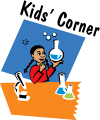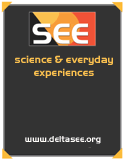
| |
 |
 |
||
 |
|||
|
SEE Training One component of the Science and Everyday Experiences (SEE) Initiative is to provide leadership and professional development activities to both prepare and mobilize the members of the 900+ Delta Chapters to serve as life-long informal science education organizers for family and community science events or as parent educators. Training workshops are open to Chapter members throughout the seven Delta regions. Participants in SEE training will have the opportunity to do hands-on, minds-on and inquiry-based science, mathematics, health, and literacy activities that can be replicated with children and families in their own communities across the country. In addition to hands-on science activities, SEE training workshops include discussions of the following topics:
|
|
|
Table of Contents |

Privacy Policy | Site
Map | Email Webmaster
Funded by National Science Foundation
NSF Grant # ESI 01-04555
